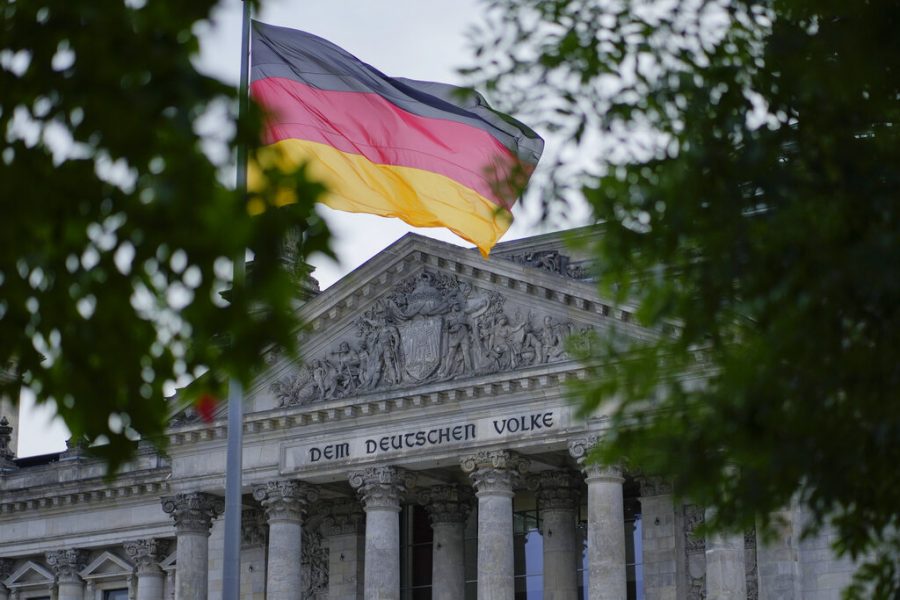German Elections Bring Political Change
Image from: AP
The German national flag waves in front of the German parliament building, the Reichstag Building, with the slogan: ‘To The German People’ in Berlin, Tuesday, Sept. 28, 2021. Germany’s newly elected lawmakers are holding their first meetings as their parties digest the fallout of the election that reduced outgoing Chancellor Angela Merkel’s bloc to its worst-ever result and start the process of putting together a new government. (AP Photo/Markus Schreiber)
This Sunday, hundreds of thousands of Germans filed into polling stations to vote in the 2021 federal elections – and for the first time in 16 years, Angela Merkel is no longer a choice for Chancellor. Despite weathering a financial crisis, the Covid-19 pandemic, and the fallout of Brexit, Merkel decided to step down after it was clear a “significant shift in German politics” would take place after the election. Sure enough, the Social Democratic Party of Germany (SPD) won with a slim 25.7% of the vote, narrowly beating out Merkel’s Christian Democratic Union (CDU) party, which held 24.1% of the vote.
However, unlike the United States, the German political scene has more than two parties present. The Green Party, an environmentally-focused party, won 14.8% of the vote, while the Free Democratic Party (comparable to the Libertarian party in the US) won 11.5%. Lastly, two more extreme parties managed to secure a decent amount of seats in the parliament; the Alternative for Germany, a right-wing nationalist party, won 10.3% of the vote, while The Left, the direct descendant of the Communist party that ruled East Germany, won 4.9% of the vote.
The prime candidate for the new Chancellor of Germany is Olaf Scholz, the Vice Chancellor of Germany since 2018 and a prominent politician in the SPD. If the SPD is to have control over the government, however, they must form a coalition, or agreement, with other parties in order to agree on issues. So far, Scholz has stated that he is partial to a coalition with the Green party, and it is speculated that the SPD will ally with the Free Democratic Party to reach a majority in parliament. After 16 years of political stability, the world waits and watches to see where Scholz will take the German nation.
Sources:
https://www.cnn.com/2021/09/27/europe/spd-cdu-german-election-results-intl-hnk/index.html
https://www.cnn.com/2021/09/27/europe/olaf-scholz-profile-spd-germany-election-intl/index.html


